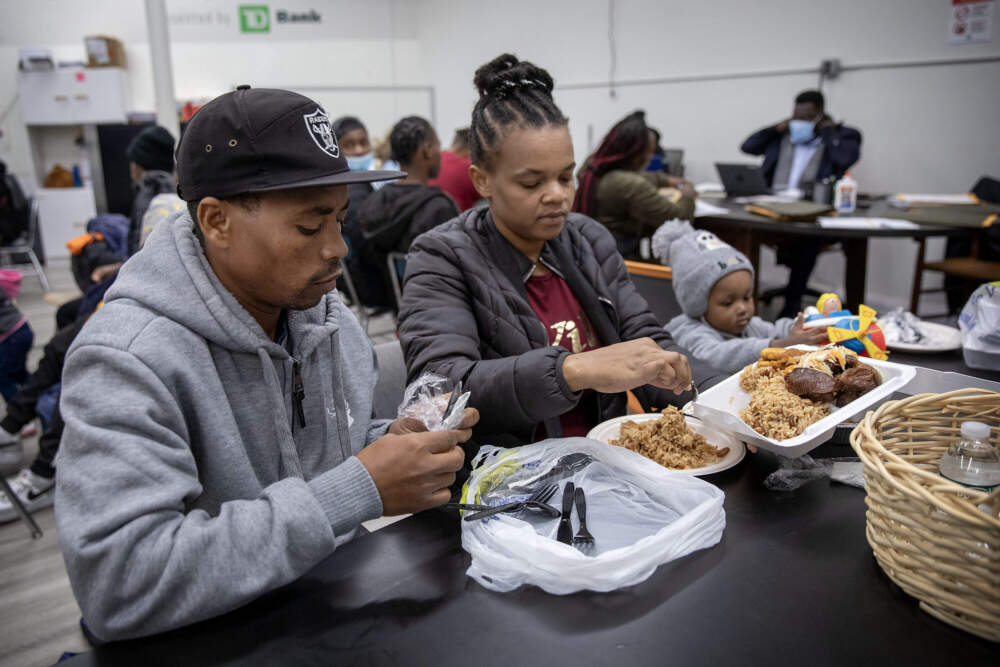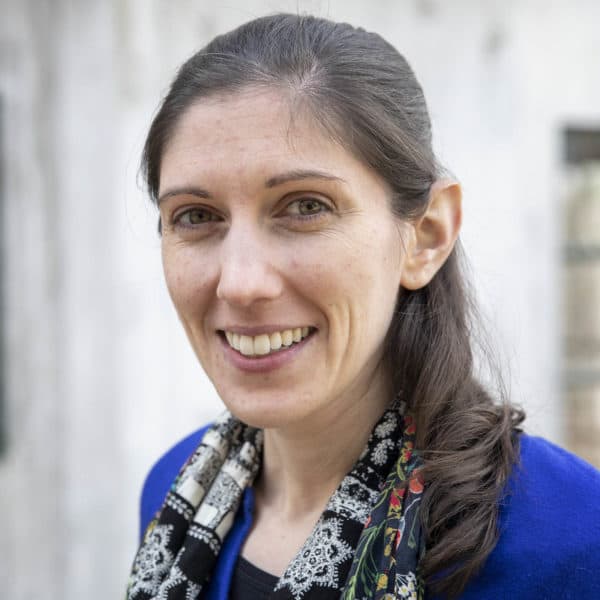Advertisement
'Pretty bleak': Waitlist for family shelter tops 200 households after first month

One month after Massachusetts officials began placing people on a waitlist for the state-run family shelter system, at least 225 families are on it. Advocates said some are sleeping in their cars or outdoors while they await assistance.
In that same period, two emergency overnight shelters have come online for waitlisted families. However, advocates and nonprofit organizations said there still is not enough space for all the families who need help.
“It's pretty bleak,” said Trish Appert, executive director of the social services nonprofit Friendly House in Worcester.
In addition to insufficient space, Appert and other advocates said the new emergency shelter sites are not equitably distributed across the state. They added there’s significant confusion about who is on the waitlist and how long the wait will be.
Overflow shelter is limited to Greater Boston
The two overflow shelter sites can accommodate up to 87 waitlisted families, according to organizers.
One of those sites, and the only one operated by the state, moved late last week from conference rooms in the state transportation building to Eastern Nazarene College, a private Christian school in Quincy, increasing capacity from 25 waitlisted families to 57 families.
Catholic Charities Boston, with grant support from the United Way of Massachusetts Bay, has space for another 30 families in need of emergency accommodations. There are also some religious and cultural groups that have opened their doors to waitlisted families or paid for hotel rooms.
However, advocates said the overflow sites are both located in the Greater Boston area, leaving homeless families elsewhere in the commonwealth with few options.
“We really need this to be statewide. Families experience homelessness all over the state,” said Liz Alfred, an attorney at Greater Boston Legal Services. “It's hard for [homeless advocates] in the west and in central Massachusetts, and in the north and the south to find a place for families to go.”
State officials implemented the waitlist citing record demand for the family shelter system and financial constraints. In the past month, Appert said more than 60 families have reached out to Worcester-based Friendly House.
“We're hearing from families who are staying in their cars,” Appert said. “We're saying the best-case scenario is to stay in a bad situation — to stay doubled up [at someone else's home], to stay with someone that may not be safe. There are not good choices right now.”
Appert said her staff has been lucky to get some families into overflow shelter sites for the night. But that also means a scramble to pay for transportation to Boston, which is often far from the family’s community, work and school.
“Even if we do that for a family, that's not an ideal situation. It's not a real shelter. It's not an individual room,” Appert said. “I mean, we're grateful that it exists. More of it needs to exist. But it's not a good solution.”
“I don't think Friendly House has really ever been in a situation where we could do so little for families facing homelessness,” she added.
"We’ve had some clients who came to us and have been staying outside. ... We're in really uncharted waters.”
Liz Alfred, Greater Boston Legal Services
United Way said it is in talks with roughly a dozen community groups about opening additional overflow sites through a $5 million grant program, which is funded by federal dollars. The hope is to announce a site outside the Boston area soon.
“We’re working on it,” said Sarah Bartley, vice president for safe and stable housing at the United Way of Massachusetts Bay. “We have had proposals or leads from three or four sites in the central [and] western Mass. area. And we're actively wanting more.”
State officials also plan to announce an additional overflow site “soon,” Kevin O’Connor, a spokesperson for the Executive Office of Housing and Livable Communities, the state agency that oversees the shelter system, wrote in an email.
When state lawmakers passed supplemental funding for the shelter system last week, they required the Healey administration to set up overflow shelter space by the end of the year.
O’Connor said roughly 70% of waitlisted families are in the Boston area.
To determine which families get priority on the waitlist, the state is now conducting health and safety evaluations for families deemed eligible for the system. Last week, the state said it is opening a site in Revere for the evaluations and providing some overnight accommodations for families during the process. A spokesperson didn’t specify how many families could be supported at that location.
Confusion about who is on the waitlist
For families that don't get a spot in an official overflow site, advocates have created an informal email chain to help find accommodations. The group includes legal aid organizations and nonprofits.
“People are sending emails like, ‘We have a family in this area, does anybody know of some place where they could go tonight?’ ” said Alfred of Greater Boston Legal Services.
She noted it's been a challenge to figure out which families are on the state’s waitlist. Alfred said families aren’t given any documentation confirming their eligibility for shelter or placement on the list. Advocates are also finding it difficult to get information about which families have a higher priority, making it tough to estimate how long they are likely to wait for shelter.
“It's hard to find that out from the [state] field staff. Either they are just so overwhelmed right now that they can't respond, or they don't know the answer,” said Alfred. “It's very hard to tell people what to expect.”
Information about waitlist status can also influence which group agrees to host a family or dig into its emergency fund for a motel room, she said. In some cases, homeless families have been unable to find any accommodations through friends, nonprofits or in overflow sites.
“We’ve had some clients who came to us and have been staying outside,” Alfred said. “We're in really uncharted waters.”
Until last month, Massachusetts had never placed unhoused families on a waitlist. Organizations that manage shelter sites for the state said the change has prompted them to collaborate in new ways.
“We're thinking through the system and where we can shift things to make it more efficient or better,” said Danielle Ferrier, CEO of Heading Home, a Boston-area homeless services provider.
Ferrier is helping coordinate weekly calls with several shelter providers. She said a large part of the goal is to help families already in the system find permanent housing, so units can be vacated for those on the waitlist.
Although some families have received shelter since the waitlist took effect, the number of newly qualifying families continues to outstrip those leaving the shelter system.
